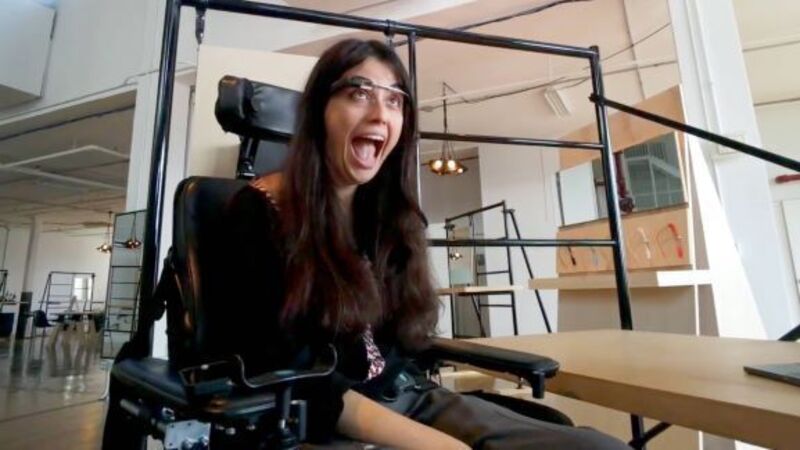Google Glass changes Aleksandra’s life

A 26-year-old quadriplegic, Aleksandra needs assistance with bathing, eating, and countless other activities, but the new gadget has allowed her to do things on her own that she didn’t think would be possible again.
Before a car accident a year and a half ago, Aleksandra used her smartphone just like most 20-somethings. She took photos and immediately shared them; she used a maps app to get around in New York City; she quickly Googled things to keep up with conversation. But when she became paralysed from the chest down, her life changed.













